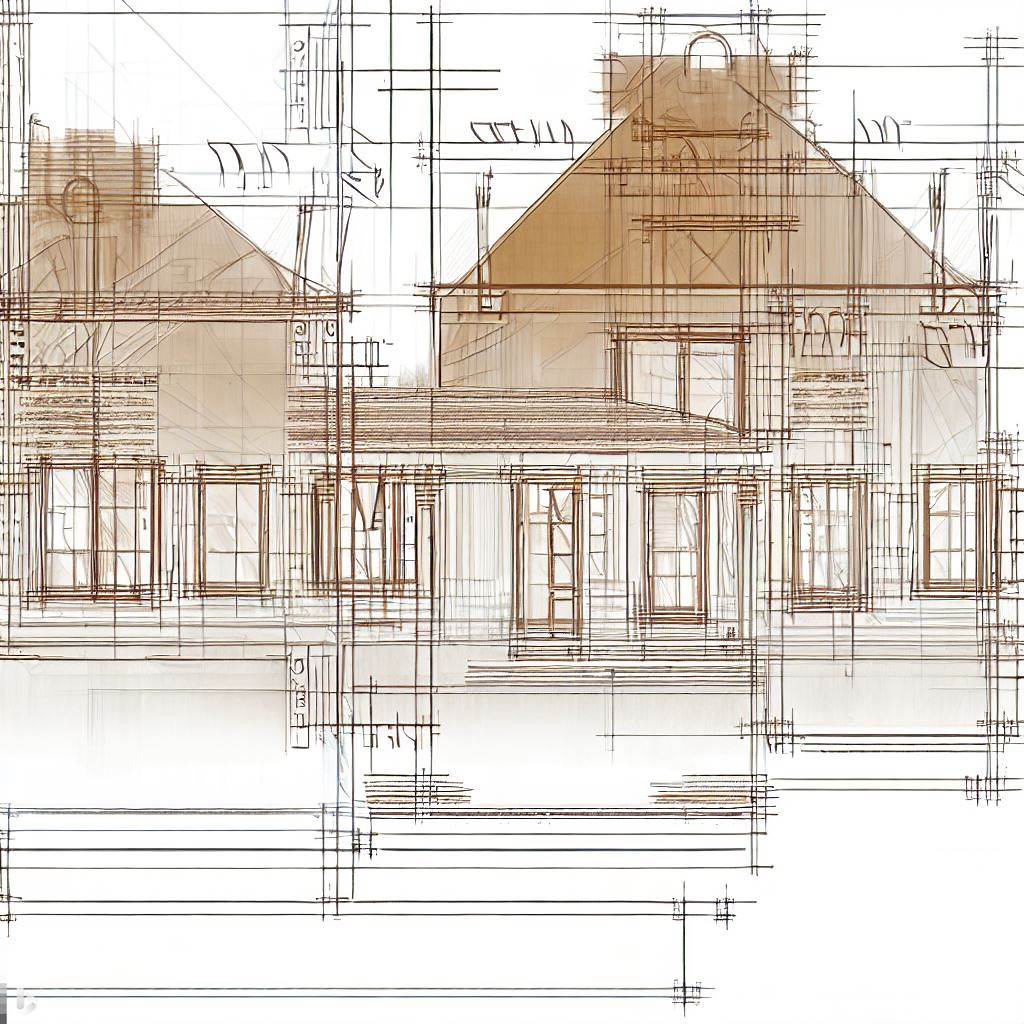How Long Does a Home Renovation Project Take in Toronto?
Embarking on a custom home renovation project, whether to build your dream home or to freshen up an outdated space, can be both an exciting and overwhelming process as an experienced or new home owner. Whether you’re considering a full home renovation, floor-by-floor upgrades, or adding extra space to your house, one of the first questions you’ll likely ask is: “How long is this major renovation going to take?”
When most people ask this question, their main concern is how long they will be out of their home, or how long the work will take to complete. This key part of the project is known as the Construction Phase. In addition to this phase of a project, Pre-construction Planning and Design phase, as well as a Post-construction phase will require additional time.
The Construction Phase of a major home renovation, including entire home, multi-floor projects or new additions can range from 6 -12 months. A single-floor renovation will typically take 3- 6 months. Understanding the factors that impact your specific project’s timeline is crucial, not only for planning your life around the renovation, but also for managing your expectations and budget. To understand those factors, let’s cover a few common misconceptions in the home renovation industry.
What are the Top Myths of Renovation Timelines?
There are several misconceptions that may be misleading when it comes to planning the timeline for your older home renovation.
You Can Start Building Right Away
Perhaps you just purchased a home and are looking to start the day after closing, you have a baby on the way and want everything perfect before their arrival, or you’ve been considering extensive renovations for a while and you are now ready and eager to get started as soon as possible.
The truth is, a thorough planning stage is the backbone of a successful house renovation. This requires coordination between a team of professionals, which may include architects, designers, contractors and trades, to ensure your vision is accurately captured and then implemented.
Due to the current demand for renovations in Toronto, designers and contractors can often be fully booked with ongoing projects for months in advance, meaning additional lead time is needed before they can turn their focus to give your project the attention it deserves.
Skipping a Designer will Save Time
Skipping the design phase may seem like a time-saver, especially if you’re aiming for a “simple or basic” renovation. However, almost every renovation project tends to be more complex than it may first appear. Bypassing professional design can lead to more lost time spent during the construction phase.
Last-minute design decisions can be not only overwhelming and exhausting but often lead to scheduling and construction delays when specific products or services were not predetermined. These decisions can be made faster and more effectively by a designer. Even for something as basic as a bathroom renovation, you will quickly discover that a designer can bring value by ensuring the details align with your needs, preferences and budget.
The range of a designer’s services can be as simple as an initial consultation, to gather information and inspire direction, to a complete design and management throughout the duration of your project. The cost of design services depends on the designer, the scope of the project, and the deliverables required.
Not getting Permits will save time
For projects that require permits, especially where structural work is involved, not obtaining the necessary permits can result in costly delays. You may risk having the project put on hold, or being shut down entirely while arranging the required design/engineer drawings and having the permits issued. Even worse, discovering that the structural work was not completed to code or is deemed unsafe, either during the course of construction or after the project is completed and the contractor has been paid, leaving you with increased costs and long delays. Be wary of home renovation contractors who suggest that they will take on a project involving structural work (beams, foundations, additions) without a permit.
Faster is Better
One prevalent misconception is that renovations can be completed more quickly than they actually can, leading to frustration when reality sets in. It is crucial to have realistic expectations aligned from the onset to avoid project extensions that can stretch weeks (or even months) beyond the original completion date.
Various factors can extend project timelines, such as: unforeseen structural issues, coordinating the schedules of the designer, engineer, and trades, custom product purchases, and supply chain delays, just to name a few. Contractors may provide an overly optimistic timeline with the expectation that a project won’t run into any obstacles or to help sell a project by making it seem more straightforward than it actually is.
Taking the time to review any potential issues or causes for delays are good exercises to conduct when planning your project with your contractor. This can help you to better understand the flow of work and to ensure that an appropriate amount of time has been provided for every unique phase of your project. It will also provide an opportunity to consider solutions and contingencies to keep your project on track.
A thorough pre-construction process can help set expectations from the outset, giving you a clear timeline and an understanding of the renovation process before you renovate.
What is a Typical Timeline for a Home Renovation Project?
Renovation timelines can be as complex and varied as the projects themselves. From the initial design phase to the final touches, each stage unfolds with its unique set of variables. Navigating these phases with a clear understanding can help you anticipate the duration of your older house renovation accurately.
What are the phases of a major or full home renovation?
A major renovation progresses through three main phases after an initial consultation.
- The Design & Pre-Construction Phase for detailed planning and permitting,
- Construction Phase involving demolition, building, utility integration and finishing,
- Post Construction to ensure you are satisfied with your new home.
How long does the Design and Pre-Construction Phase take?
Depending on the scope of the renovation project and the efficiency of the design and planning phase, it can take anywhere from 1 – 4 months for older homes.
The Design and Pre-construction phase usually involves:
- Defining your project scope and investment goals
- Selecting the right contractor and designer
- Collaborating with your design + build team to align your project goals
- Finalizing the design and scope of work
- Submitting permit applications and setting a project schedule
Exactly how long the project design and planning phase will take may depend on the design requirements and coordination needed for your specific type of renovation, which may include a site surveyor, engineer, architect, and interior designer, among others.
The complexity of the design package, which may include site plans, elevation drawings, concept drawings, 3D renderings, shop drawings, and material selection may also impact the time necessary to complete the design and pre-construction phase.
Ideally, your home renovation contractor will collaborate with the design team to maximize the efficiency of the renovation process and offer alternative options (i.e., value-engineering solutions) when needed.
How long do permits take to get approval for my major renovation?
Toronto’s regulations necessitate certain permits and approvals before many types of interior home renovation projects can commence. Working with your contractor, it is important to adhere to City of Toronto regulations and obtain these required permits when needed. The permit approval process may require communication and approval by neighbours. The timeline for building permit approval typically ranges from 2 – 4 weeks.
If you are expanding the existing footprint of your home with an addition, zoning approval is required. The zoning application can take 2 – 3 weeks, at which point it will be determined if your project will require a hearing at the Committee of Adjustments. Committee of Adjustments approval can take between 3 – 6 months, at which time, your final permit application can be submitted.
This 2-week to 8-month regulatory navigation period is a critical phase where patience, proper documentation, and planning is your ally. Permit drawings and applications can be completed by a certified professional, which can include an architect, designer, draftsperson, or engineer.
There are other City of Toronto departments that oversee tree protection, ravine areas, and guidelines for heritage homes and streets, to name a few. Each of these permits could add weeks or even months of additional time to the process.
Pre-construction planning can help mitigate your risks
Are you planning a renovation project but worried about the risks and potential delays? A pre-construction process can help you minimize those risks and ensure the success of your project.
With a detailed plan and thorough assessment of your needs before construction begins, you can eliminate costly assumptions, surprises and budget creep.
How Long Does the Construction Phase of a Renovation Take?
Once all the design, planning and paperwork is settled and the permits are in hand, the Construction Phase of your renovation can begin, and with it, your inspired design can be brought to life. Knowing this timeframe is important, as it will likely determine how long you will need to relocate.
Having a clear understanding of expectations when this phase begins is crucial for all stakeholders to ensure everyone is on the same page. Your contractor should provide you with a detailed schedule for the project which outlines the overall project timeline and includes information about any key dates, along with any decisions or orders that will need to be made. If done carefully, using all the information provided through the Design and Planning Phase, this schedule should account for the many variables and considerations that typically occur during construction, providing you with a realistic and accurate plan for how long the project will take to complete.
A plan to meet with your contractor and design team at key milestones in the project should be predetermined. Your contractor should also provide you with access to Project Management software, spreadsheets, or any other tools and materials that will be used to track the progress of your project, update any changes to the scope of work, and aid in communication throughout the Construction Phase.
How Much Construction Time Should I Allocate for Different Types of Renovations?
Construction timelines for major renovations are contingent on the scope, the square foot, and complexity of the project, as well as design details and material selections. Here is a rough guide to timelines for each type of project:
- Home Additions: A back addition or top up in Toronto can take 3 – 6 months. If the addition is part of a larger renovation project, it can take up to 12 months.
- Laneway House and Garden Suites: A Laneway or Garden Suite project can take about 8 – 12 months.
- Full Home Renovation: Custom full home renovations typically range from 6 – 12 months.
- Single Floor Renovation: A full single floor renovation can take 2 – 6 months to complete.
- Kitchen Renovation: A typical kitchen renovation can take anywhere from 2 – 4 months to complete.
- Basement Renovation: A typical basement renovation takes anywhere from 2 – 4 months. If underpinning or a new basement slab is involved, it could add 2 – 4 months to the project.
- Custom Millwork: On average, custom woodworking pieces can take anywhere from 2 weeks to 3 months to complete.
- Outdoor Spaces: A deck, porch, or backyard space renovation typically takes anywhere from 2 weeks to 3 months, if landscaping is involved.
Toronto renovation timelines vary: home additions and major renovations can take 3 to 12 months, while smaller projects like a deck or kitchen can range from a few weeks to several months. Understanding these timeframes is essential for effective planning and execution of your renovation project.
What does the Post-Construction Phase of a Home Renovation consist of?
Post-construction is not simply about admiring the results; it’s also about ensuring the renovation has met or exceeded your expectations. Your contractor should schedule a final walkthrough of your home as the work is being completed. The meeting will allow you to familiarize yourself with your new spaces and allow an opportunity to create a punch list for any final details. These should all be addressed prior to signing off on the project and moving back into your new and improved home.
In addition to this visit, your home renovation contractor should provide you with product demos, explanation of warranty, and general maintenance information to uphold the beauty and quality of your renovation. And let’s not overlook the importance of a professional cleaning service to make your revamped space truly move-in ready.
Having confirmed your warranty details and terms with your general contractor early on in the pre-construction planning process, the warranty timeframe will now begin. A warranty of 1-2 years is industry standard, ideally with a scheduled check-in time set up when the project is completed.
Contact us today to talk about your renovation goals
At Oriel Renovations, we deliver what we promise. Our expertise in managing detailed timelines, from initial planning to the final walkthrough and beyond, ensures your renovation journey is smooth and transparent.
Connect with us to discuss how our home renovation services will help you align your project goals with a clear, well-planned timeline, and take the first step towards a successful home renovation that marries timely completion with exceptional results.






How to ensure your older Toronto home renovation stays on time?
in Blog, Planning, Time, time-2You’re staring at cracked plaster walls, uneven creaky floors, and outdated fixtures of your century home and thinking, “It’s time for a renovation.” But let’s be clear: conducting major renovations of an older home isn’t a simple project. It’s a multi-month logistical challenge that involves detailed planning, hundreds of decisions, and a significant investment of time and money.